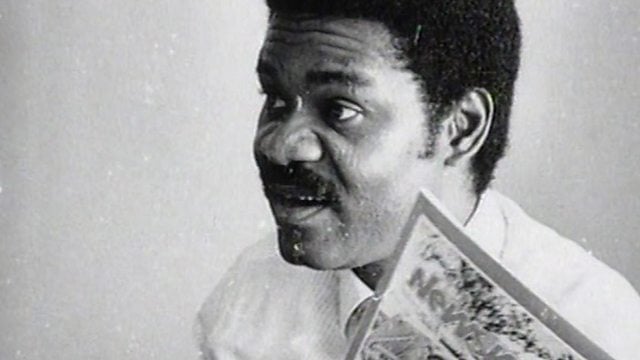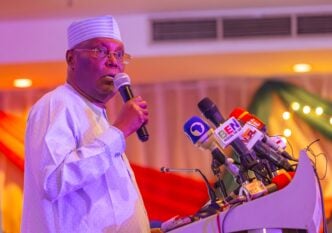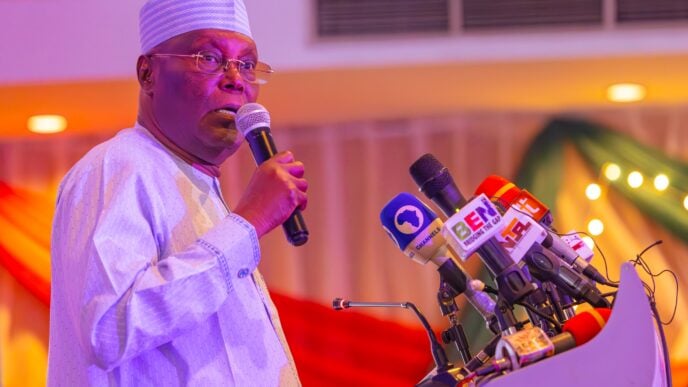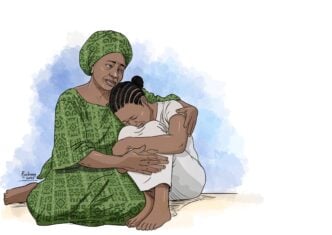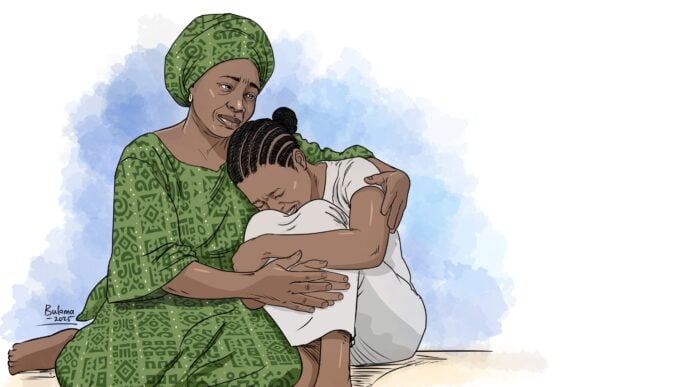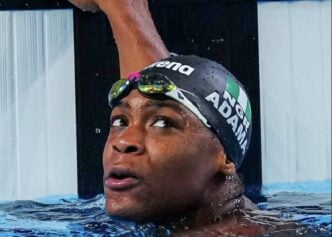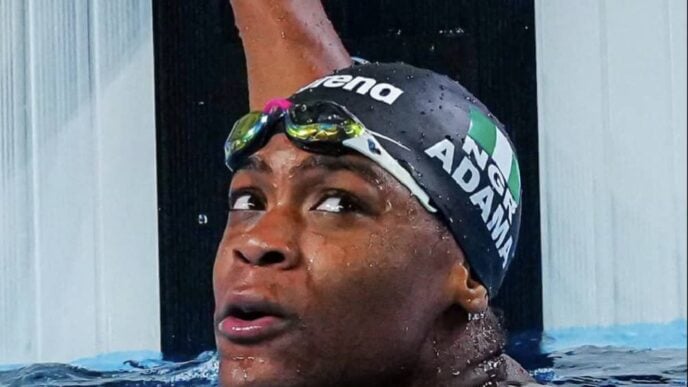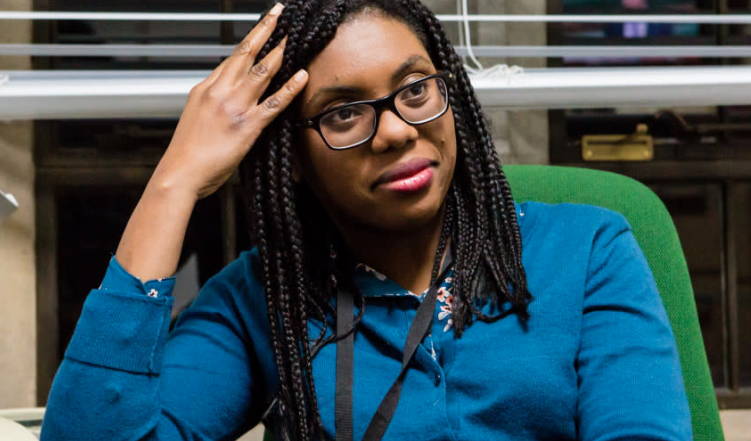Dele Giwa
Mr Yakubu Mohammed’s just-released memoir, ‘Beyond Expectations’, has reopened an old wound. It is a good thing because we cannot afford to forget our history so easily. The journalism legend, who co-founded the iconic Newswatch magazine with Dele Giwa, Ray Ekpu and Dan Agbese in 1984, has punctured a conspiracy theory I have cuddled all my life: that Giwa was murdered via a parcel bomb 38 years ago because he was investigating the case of Ms Gloria Okon, a lady who was allegedly a drug courier for the people in power. She was reportedly arrested at the Kano airport, detained, declared dead and surreptitiously ferried away to the UK to live there happily ever after.
Here is the theory in full: Giwa discovered and interviewed Okon in the UK along with the magazine’s London bureau chief, Mr Kayode Soyinka. Thereafter, Soyinka came to Nigeria with her pictures and the transcript of the interview. They were reviewing the materials together over breakfast that early Sunday morning, October 19, 1986, when the parcel was handed to Giwa by his son, Billy, who had just collected the delivery from the gateman. When Giwa saw the handwriting on the parcel, he said: “This must be from the president.” He held the parcel and tried to open it, only for it to explode and blow him up. He died from his wounds moments later. Clearly, there would only be one suspect.
It also did not help that two days before Giwa was killed, he was invited by the State Security Service (SSS, which now calls itself DSS). Lt-Colonel A.K. Togun, the deputy director of the SSS, pointedly accused Giwa of: (1) planning to do a follow-up story on the unceremonious removal of Commodore Ebitu Ukiwe as President Ibrahim Babangida’s 2-in-c (2) plotting to write sympathetic articles on Mr Alozie Ogugbuaja, the police spokesman who had made critical comments about soldiers to the effect that they were doing nothing other than eating pepper soup in the barracks and plotting coups (3) supporting socialists to destabilise Nigeria, and (4) planning to import arms into the country.
To complicate matters, Giwa was receiving phone calls from Col Halilu Akilu, the director of the DMI (Directorate of Military Intelligence) around the same time, and even on the day he was killed. The theory then was that the security agents wanted to be sure Giwa was at home to receive the parcel himself so that it would not terminate the “wrong” life. Akilu calling Giwa persistently — after the SSS had just made the most outrageous allegations against him — was a perfect ingredient to sweeten the conspiracy theory. When Chief Gani Fawehinmi, the Newswatch lawyer, took up the case and was hounded by the state, what other conclusion could any reasonable person come to?
Advertisement
Thankfully, Mohammed’s memoir has resolved one of the riddles for me. He swore that nobody was writing anything about Gloria Okon. No reporter, no editor, no director and certainly not Dele Giwa, who likely never heard of her before his gruesome death. How could he have travelled to London to interview someone he never heard of? But in every rumour, there are always some facts. Giwa and Mohammed were actually in London in September 1986 but, according to Mohammed, it was to visit Chief Ime Umanah, their chairman, who was recuperating from an accident he had between Makurdi and Enugu. (Incidentally, Umanah, who later became a politician, would die in an accident in 2015.)
But I have been thinking: if Okon was indeed a drug courier for the first family, I doubt any security agency would arrest her at the airport, much less declare her dead and relocate her “nicodemusly” to the UK. With the way the state works, she would have received a VIP treatment and would not have been stopped and searched at the airport. Even if she was caught, it would only take an “order from above” to get her released immediately. She would not have to leave Nigeria under any guise. Maybe I am oversimplifying this. Truth is: for decades, I believed this fable as it related to Giwa. I do not believe it any more. When you operate from a position of prejudice, you will believe anything.
That still does not answer the question: who killed Dele Giwa? Even if we remove Okon from the equation, there are still more questions than answers. The obvious suspects were Togun, the SSS deputy director, and Akilu, the DMI director. They both strenuously denied involvement and won a suspiciously fast-tracked libel case against Fawehinmi in 1988. My belief all along was that Akilu was calling Giwa to know his exact location for the parcel delivery, but Mohammed’s account differs. He said Akilu’s calls were, to the contrary, friendly and meant to assure Giwa not to worry about the SSS invitation and the allegations piled on his head. This is the first time I am hearing this version.
Advertisement
Giwa, by the nature of his brand of journalism (he trained in the US), was a thorn in the flesh of the authorities — dating back to his time as editor of Sunday Concord. He had been a regular guest of the security agencies. They were always inviting him. While Giwa and Mohammed were in London in September 1986, the author recalls, Umanah had told Giwa, the editor-in-chief, to get acquainted with Akilu. He gave him Akilu’s number. Giwa visited Akilu and, according to Mohammed, was much impressed with the civilised way the intelligence chief treated him, contrary to how his “boys” often behaved whenever he was invited for interrogation. In a sense, they now had a cordial relationship.
Thence, when SSS invited Giwa and rolled out the heavy allegations against him on Friday, October 17, he tried to report what had just happened to Akilu but could not get him on phone. Akilu returned the call but could not get him on either his home or office number. Giwa was out that Saturday attending events for media executives. There were no mobile phones in those days. It was finally on the Sunday morning they were able to speak. Akilu, Mohammed wrote, assured Giwa that he had spoken to the SSS and that he should consider the matter closed. Those allegations were apparently fabricated to intimidate him, but accusing a journalist of importing arms was way off.
Mohammed’s account regarding Akilu is significantly different from the line of inquiry by journalists and activists. Soyinka previously said: “[The] ‘principal suspect’ should be Halilu Akilu, who called Dele’s house about three times consecutively Saturday before the Sunday bombing and spoke to Funmilayo, Dele’s wife, to ask for description of and direction to Dele’s house. On the Sunday… Dele had spoken to Akilu from his upstairs bedroom before coming down to have breakfast with me to tell him that he heard he had called him on Saturday… The letter bomb was delivered to the house within 45 minutes after…” Do security agents really need to ask for direction to a top editor’s house?
In his autobiography, ‘A Journey in Service’, published earlier this year, Babangida, expectedly, did not offer any clue. He simply described Giwa as a friend. “On a personal level,” he wrote, “I had just lost a friend. Mr Giwa was a good friend, like a few other senior journalists in the country. We spoke often on the phone and met a few times. I valued his deep insight on national issues and respected his views and reach as a media leader… Whoever was the mastermind knew my relationship with Giwa and a few senior journalists. Hitting at Giwa would get to me emotionally.” He said killing a “popular journalist” was meant to “inflict a mischievous political blow on the young military administration”.
Advertisement
Babangida’s position on the non-resolution of the murder case — which Mohammed seems to agree with — was that “the involvement of high-profile lawyer Gani Fawehinmi and the populist slant given to the case by the media poisoned the investigation with political overtones. The investigation into the Giwa murder became part of the tools in the armour of a growing political opposition targeted at discrediting the military over the planned political transition programme and human rights issues”. In fact, Newswatch directors called a press conference on November 4, 1986 to dissociate the company from Fawehinmi’s pursuit of the prosecution of Akilu and Togun for the murder of the editor-in-chief.
Mohammed wrote: “During the Giwa tragedy, some people who might have been rubbed the wrong side by the Babangida administration were ready to swear that nobody else but Babangida could have killed Dele Giwa… Though many fellow patriots who felt genuinely touched by the tragedy made commendable and altruistic efforts to put pressure on the investigating agencies to do their duty, the few who had an axe to grind went too far in my view. In many instances, they invented their own stories and helped to reshape the narratives, resorting in the process to blatant fallacies and unhelpful conjectures. The methods they adopted narrowed the investigation to a few options…”
All said and done, though, we still don’t know who killed Dele Giwa. Police tried to narrow down investigation to Newswatch insiders, particularly Soyinka. They even accused Giwa’s co-directors of failing to co-operate with them during investigation, while Fawehinmi allegedly prevented the police from having access to the crime scene for over a week. Maybe he didn’t trust the police not to tamper with the evidence. The refusal of the Lagos state (military) government to allow Fawehinmi privately prosecute Togun and Akilu only worsened the conspiracy theory. We may never know who killed Giwa, but our suspicion remains intact and firm, even if Gloria Okon had nothing to do with it.
What is our suspicion? As of October 1986, who had the capacity to make that kind of bomb? It couldn’t be non-state actors. This was long before the Boko Haram era when bomb-making became an all-comers affair. We are talking about an era when the best weapon a non-state actor could make was “shakabula”. The bomb ripped Giwa’s body and study apart in a way that only a sophisticated explosive could do. Even if it was not the state itself, it could be rogue operatives. Now that Mohammed has re-opened an old wound, is it too late to re-open investigation and bring the matter to closure? The state has a duty to investigate any crime, make its findings public and prosecute suspects. Basic.
Advertisement
AND FOUR OTHER THINGS…
CITIZEN JENNIFER
Ms Jennifer Edema, a young Nigerian on national service, was dehumanised by operatives of the Agunechemba, the Anambra vigilante group, two weeks ago. She was stripped naked by the gun-wielding thugs and gangsters. Edema said the men had stormed their lodge, accused them of all sorts and started dragging some of them into a waiting vehicle. Well, there is something we need to understand about us: give authority to a Nigerian and he will abuse it to the maximum. Make it worse by giving him a uniform. Now add a gun to it. It is a cultural problem. Our understanding of power is to oppress and suppress the helpless. It is not for progress. We need a reorientation. Sad.
Advertisement
EMPTY BOOTH
The Ninth Tokyo International Conference on African Development (TICAD9) drew an unwanted attention when the amala-scouting Idris Ayodeji Bello, a participant and patriot, tweeted that Nigeria had the only unmanned booth despite a battalion of government delegates (you and I know why they travelled). The official responses were ridiculous: that the booth would soon be “inaugurated” (who inaugurates booths if not Nigeria?) and that we were not in Japan for “show” but for serious business. The proper response would be to man the booth, as we eventually did, instead of issuing rejoinders. For the record, the booth is a key gathering point for inquiries and connections. Facts.
Advertisement
CENTENARY CITY
I was a bit relieved that the Abuja Centenary City project is about to take off after being delayed for 10 years because we were trying to fight corruption. Imagine the stage the project would have reached by now. A whole 10 years wasted! The city, which sits somewhere along the Abuja-Airport road, was supposed to be a spin-off of Nigeria’s centenary celebrations in 2014. It will host three residential districts — Grove Residences, Safari Park Residences and Ridge Villas — similar to the sites we see and admire in Dubai and Doha. Investors had to go elsewhere in 2015 when the new government halted its development, revoked land titles and stalled the project. Unbelievable.
Advertisement
NO COMMENT
Did you see the video posted on social media by the Nigeria police force announcing the distribution of uniforms to its personnel? I saw it too. It was accompanied by a lengthy statement, part of which read: “This initiative has generated jubilation among the personnel, who have expressed their gratitude to the police leadership for the gesture.” Jubilation. Gratitude. For giving them the most basic of things to do their work. Gesture! Are you thinking what I’m thinking? For them to be jubilant and grateful, maybe the uniform is actually a gesture. Only legends can understand that. What next? Another video of “jubilant” and “grateful” police personnel being given guns and bullets? Hahahaha.

